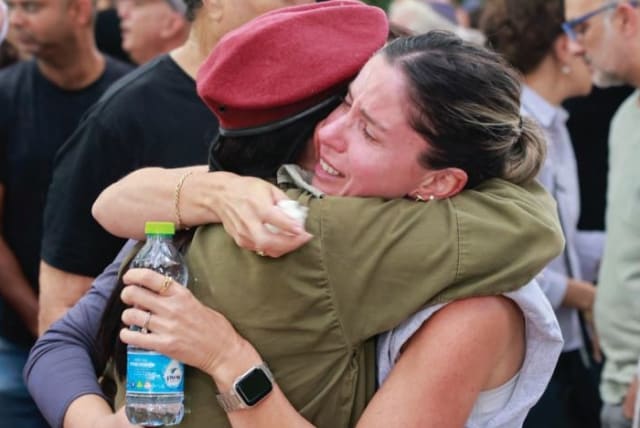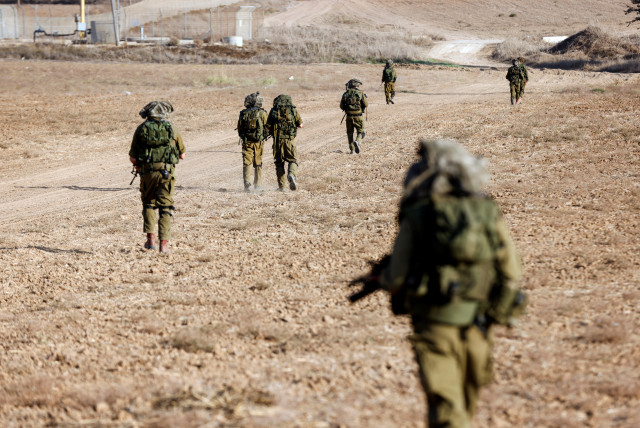Editor's Notes: Reporting a pogrom

It has been a crucible and, in some ways, a distraction – when you’re so busy reporting the news, you don’t have much of a chance to internalize it.
On July 26, 2010, an Israeli Air Force Sikorsky CH-53 helicopter crashed in the fog-shrouded Carpathian Mountains during a joint exercise with the Romanian air force.
All of those on board – four Israeli pilots, two Israeli mechanics, and a Romanian liaison officer – were killed.
At the time, I was a youngish soldier in the IDF Spokesperson’s Unit, responsible for contact between the military and the North American news media.
When word of the accident came in, we sprang into action.
We started drafting a press release, confirming its accuracy with the air force, and handled media inquiries as they came in. It soon became clear that Israel was going to have to send a search-and-rescue unit to recover the bodies, a challenging task given the rugged terrain and the difficult weather conditions. As Israeli soldiers climbed up the mountains and picked through the wreckage in search of the airmen’s remains, back in Jerusalem we ensured that all information was conveyed in an orderly manner.
When, several days later, the bodies were flown back to Israel for burial, we made sure our contacts in the media had everything they needed to report the story.
At some point in those initial hours of intense activity, when reports of the crash had started to come in but had not yet been officially confirmed, I caught myself. I realized that I had become so consumed by the work surrounding the incident that I had completely lost sight of the human story. Here were seven families who had just received the worst news of their lives, seven families shattered beyond repair, and I was busy checking the grammar of the announcement and the spelling of their loved ones’ names. I took a few moments to reflect, to honor their memory and their sacrifice, and then returned to the task at hand.
I have found myself reflecting on that experience throughout this hellish week.
The struggle and benefits of reporting the news in hellish war
It’s been 13 years since that awful day, but I haven’t gone very far: in fact, my office is one floor up from the office I inhabited when I was in the army, in the exact same building on Jerusalem’s Yafo Street.
And while I’ve gone from working with the media to being a part of it, the task of collecting, assimilating, and reporting accurate information about the events of the day is common to both.
It is difficult to put in words what the past week has been like. Wave after wave of horrifying news has come crashing down on us, each ghastlier than the last. From the early reports of an unusual security incident in Israel’s south to our current understanding of the sheer scale of the massacre and its breathtaking death toll, each hour of each day has only compounded the horror.
When we initially reported that 22 people had been killed, we already knew the number was somewhat higher. But that was the number that had been officially confirmed, so it was the number we used. Less than 12 hours later, the number we were reporting had increased tenfold, to over 250.
Never in our darkest nightmares could we have imagined that it would eventually soar to more than 1,300 dead – men and women, boys and girls, babies and the elderly – slaughtered in the most gruesome and unspeakable manner.
As the Editor of London’s Jewish Chronicle, Jake Wallis Simons, put it in The Telegraph on Saturday, when the scope of the carnage was not yet known, “this was an antisemitic attack. It was of a piece with the pogroms carried out by the Cossacks, the Iraqi mobs during the Farhud, and the Nazis.”
And we have had to report it.
My cell phone has become a mobile command center, receiving updates every few seconds and passing them along to be broadcast to millions around the world on our website and social media channels. I have been in constant contact with our reporters and editors to ensure we have the most comprehensive coverage of the massacre and its aftermath. I have done more interviews with international television and radio networks than I can count; on Thursday, I did one while attending the funeral of a young soldier killed in a gun battle with Hamas terrorists at Kibbutz Be'eri.
Since Shabbat morning, there has barely been a single waking moment in which I haven’t been dealing with that awful day’s events in some way.
It has been a crucible and, in some ways, a distraction – when you’re so busy reporting the news, you don’t have much of a chance to internalize it.
My colleague, Post Managing Editor David Brinn, captured my feelings and those of many other journalists in a piece he wrote this week comparing this deeply traumatic moment to another – the assassination of Prime Minister Yitzhak Rabin in 1995.
“One of the necessary traits required of journalists is to be able to set aside personal feelings and get the job done, like an automaton,” he wrote. “On the night of the Rabin assassination, it wasn’t only necessary; it was a coping mechanism for survival and prevention of total collapse.”
“Only after the paper went to bed did the deep breathing begin and the tears start to flow.
The following morning, waking from what seemed to be a bad dream but was instead a harrowing reality, the pervading feeling was hopelessness and helplessness. There didn’t seem to be any way back from the deep, dark hole we had fallen into. I lay in bed and put the cover over my head, wanting it all to stop. But there was another paper to put out. So I went to work and did the whole thing over again.”
“Fast forward almost 28 years later,” he continued, “and the exact same sense of despair returned. Saturday night’s shift was another breathless marathon, as a small group of dedicated individuals attempted to create a cohesive narrative of the dozens of moving pieces that made up the unbelievable events that began that morning at 6:30 a.m., all within the drastic deadline constraints.”
“And again, when the last page was finally sent to print late at night, there was deep breathing. But there were no tears this time, just emptiness, and thoughts of the dozens of Israelis captured and forced into Gaza, and what their families must be going through.”
The next morning, he wrote, “I didn’t want to go to work, I wanted to crawl back under the covers like after Rabin’s assassination and hide. But here I am, typing away. Because, what else is there to do, really?”
“I just want to sit quietly somewhere, and not think about any of this for a long while.”
On Wednesday, as I was doing yet another late-night television interview from my garden, a message came in from a friend, expressing the hope that I was finding the time to process everything that was going on.
I read the message to my interviewer and then responded on the air, to my friend and to the audience.
“I’m not sure I want to process this,” I said, “because I’m afraid that if I do, I’ll break down.”
I’m writing this less than 24 hours before Shabbat. I generally look forward to Shabbat – a welcome and necessary respite from the constant connectivity of the week – and that has never been more true than it has since I took on this job half a year ago. Despite the situation, I may even put my phone aside for at least part of the day.
But while I need a break more than anything else, I’m also concerned; concerned that without the frenetic activity of running a 24-hour news site, putting out a daily paper, managing a newsroom, and telling the world what transpired here, I may actually be left alone with my thoughts, with the first-person accounts I’ve read, and with the images I’ve seen and can’t unsee.
And I don’t know what I’m going to do when it hits me.
Jerusalem Post Store
`; document.getElementById("linkPremium").innerHTML = cont; var divWithLink = document.getElementById("premium-link"); if (divWithLink !== null && divWithLink !== 'undefined') { divWithLink.style.border = "solid 1px #cb0f3e"; divWithLink.style.textAlign = "center"; divWithLink.style.marginBottom = "15px"; divWithLink.style.marginTop = "15px"; divWithLink.style.width = "100%"; divWithLink.style.backgroundColor = "#122952"; divWithLink.style.color = "#ffffff"; divWithLink.style.lineHeight = "1.5"; } } (function (v, i) { });

